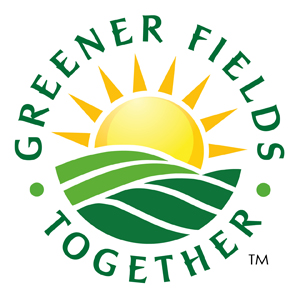Green Tomato: Sustainability from Farm to Fork
09 December 2013
 Greener Fields Together™, which documents farms’ sustainability gains, lauds four well-known produce suppliers that were recently recognized for significant improvements in waste reduction, CO2 emissions, water and energy use, and more.
Greener Fields Together™, which documents farms’ sustainability gains, lauds four well-known produce suppliers that were recently recognized for significant improvements in waste reduction, CO2 emissions, water and energy use, and more.
More of the fresh produce headed to restaurant kitchens and grocery stores nationwide is now verifiably “greener” and more sustainably raised. This accomplishment is thanks to Greener Fields Together, the sustainability and local-produce initiative created by the PRO*ACT produce supply-chain management company, which works with partner farms to implement and track continuous, farm-to-fork sustainability improvements. Via independent verification service SureHarvest, Greener Fields Together has documented significant sustainability improvements made by four of its national farm partners: D’Arrigo Bros. Co. of California, Mission Produce, Grimmway Farms and Rainier Fruit Company.
Detailed case studies evaluating and verifying strides made by these companies are now available on http://www.greenerfieldstogether.org/national_farms_featurettes.php. Highlights include:
D’Arrigo Bros. By merging several facilities into a single location situated in the heart of its farming fields, D’Arrigo saves an estimated 300,000 truck miles previously traveled each year to haul product from field to cooler. This is the equivalent of taking 123 cars off the road each year and cutting annual CO2 emissions by 593 metric tons. By reducing travel time and distance from field to cooling facility, D’Arrigo also has improved product safety and quality.
Mission Produce. Mission has implemented an innovative, fully automated system to manage water and nutrients at its San Luis Obispo, Calif., avocado orchard. The system enables Mission to irrigate and fertilize precisely when and where the trees need it to optimize production using less water and fertilizer per unit. The company’s investment in water-management innovations has resulted in significant savings.
Grimmway Farms. Committed to a balance between social, environmental and economic gains, Grimmway has undertaken a zero-waste strategy. This includes reducing, reusing and recycling materials used in production. The goal is to prevent, reduce or recycle 80% of its landfill waste, using it in more productive streams, such as compost or cattle feed.
Rainier Fruit Company. Via energy-efficiency improvements made during a 2012 renovation of its organic-certified facility in Prosser, Wash., Rainier targets savings of 3.44 million kWh per year. Overall, the facility is now 35% more efficient, savings that can power 300 U.S. households each year. Improvements made include installation of variable-frequency drives on fans and variable-speed waste-water aerators, system software upgrades that increase control and automation of controlled-atmosphere rooms, and replacement of cold-storage doors with state-of-the-art insulated automatic doors that use infrared sensors to quickly open and close.
D’Arrigo Bros., Mission Produce, Grimmway Farms and Rainier Fruit Company join other Greener Fields Together national farm partners whose sustainability improvements have already been verified by SureHarvest and documented in detailed case studies. They include Sunkist Growers Inc., NewStar Fresh Foods, Taylor Farms California Inc. and Naturipe.
“The strides being made by Greener Fields Together national farm partners are truly impressive,” says Max Yeater, president of PRO*ACT. “These are large, high-volume, sophisticated farming organizations that supply fresh fruits and vegetables to foodservice and consumer kitchens nationwide and beyond. Every move they make to improve the sustainability of their operations has a real impact on their products, their consumption of natural resources, and ultimately on the health of the planet. We’re proud to be a catalyst for such change and will continue to verify, chronicle and celebrate their improvements.”
Greener Fields Together™ is a collaboration of environmentally responsible parties including farmers, distributors, retail locations and foodservice operators who have come together to make steady, measurable improvements in sustainability and food-safety practices through all levels of the produce supply chain. For more information, visit www.greenerfieldstogether.org.



